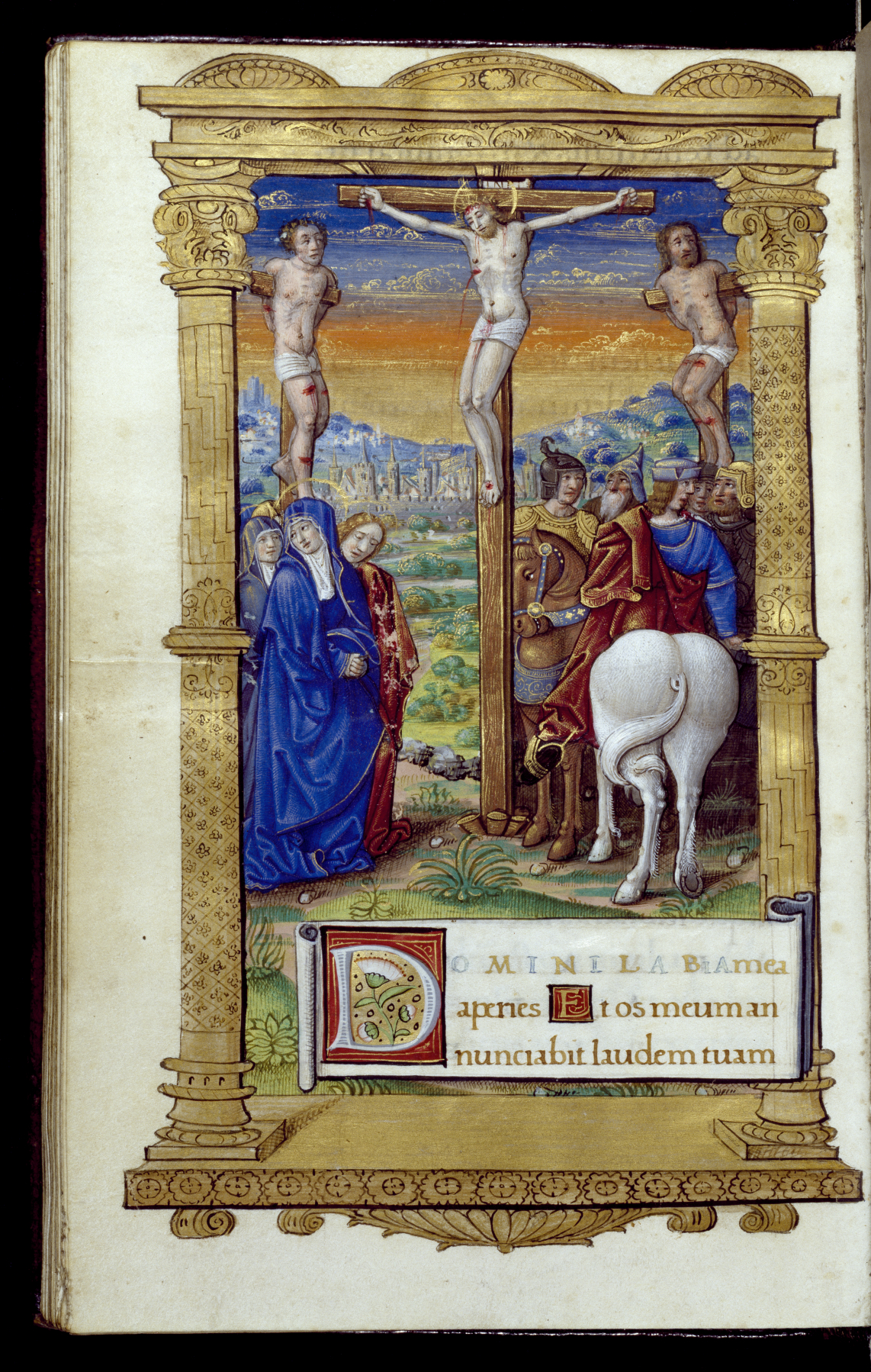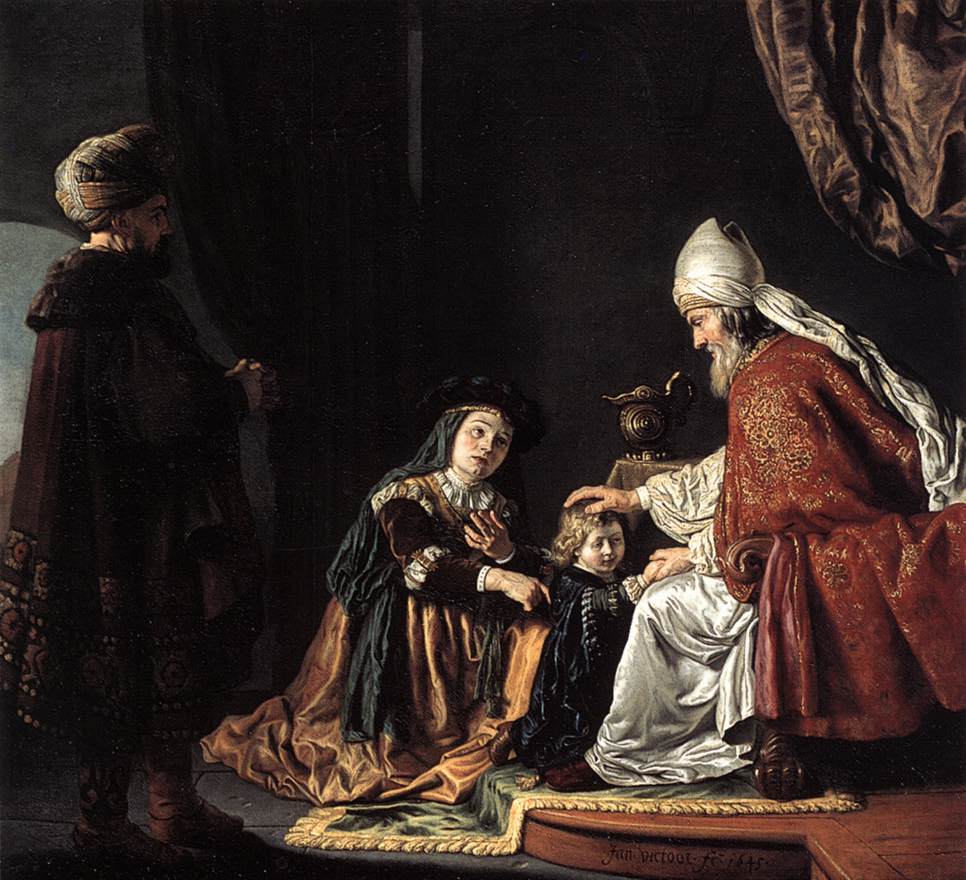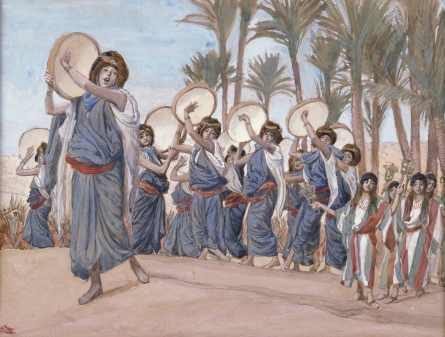|
Canticle
A canticle (from the Latin ''canticulum'', a diminutive of ''canticum'', "song") is a hymn, psalm or other Christian song of praise with lyrics usually taken from biblical or holy texts. Canticles are used in Christian liturgy. Catholic Church Prior to the Pope Pius X's 1911 reforms, a single cycle of seven canticles was used at Lauds: * Sunday – The Song of the Three Holy Children () * Monday – The Song of Isaiah the Prophet () * Tuesday – The Song of Hezekiah () * Wednesday – The Song of Hannah () * Thursday – The (First) Song of Moses () * Friday – The Prayer of Habakkuk () * Saturday – The (Second) Song of Moses () These canticles are rather long, and the weekday ones display something of a penitential theme, but some were not often used, as all feasts, and weekdays in Eastertide used the Canticle of Daniel, the Sunday canticle. The 1911 reform introduced for weekdays not of penitential nature, and for lesser feasts and days of the lesser octaves, the follow ... [...More Info...] [...Related Items...] OR: [Wikipedia] [Google] [Baidu] |
Benedictus (Song Of Zechariah)
The Benedictus (also Song of Zechariah or Canticle of Zachary), given in Gospel of , is one of the three canticles in the first two chapters of this Gospel, the other two being the " Magnificat" and the " Nunc dimittis". The Benedictus was the song of thanksgiving uttered by Zechariah on the occasion of the circumcision of his son, John the Baptist. The canticle received its name from its first words in Latin ("''Benedictus Dominus Deus Israel''", “Blessed be the Lord God of Israel”). Structure The whole canticle naturally falls into two parts. The first (verses 68–75) is a song of thanksgiving for the realization of the Messianic hopes of the Jewish nation; but to such realization is given a characteristically Christian tone. As of old, in the family of David, there was power to defend the nation against their enemies, now again that of which they had been so long deprived, and for which they had been yearning, was to be restored to them, but in a higher and spiri ... [...More Info...] [...Related Items...] OR: [Wikipedia] [Google] [Baidu] |
Liturgy Of The Hours
The Liturgy of the Hours (Latin: ''Liturgia Horarum'') or Divine Office (Latin: ''Officium Divinum'') or ''Opus Dei'' ("Work of God") are a set of Catholic Church, Catholic prayers comprising the canonical hours, often also referred to as the breviary, of the Latin Church. The Liturgy of the Hours forms the official set of prayers "marking the hours of each day and sanctifying the day with prayer." The term "Liturgy of the Hours" has been retroactively applied to the practices of saying the canonical hours in both the Eastern Christianity, Christian East and Western Christianity, West–particularly within the Latin liturgical rites–prior to the Second Vatican Council, and is the official term for the canonical hours promulgated for usage by the Latin Church in 1971. Before 1971, the official form for the Latin Church was the ''Roman Breviary, Breviarium Romanum'', first published in 1568 with major editions through 1962. The Liturgy of the Hours, like many other forms of the c ... [...More Info...] [...Related Items...] OR: [Wikipedia] [Google] [Baidu] |
Vespers
Vespers is a service of evening prayer, one of the canonical hours in Eastern Orthodox, Oriental Orthodox, Catholic (both Latin and Eastern), Lutheran, and Anglican liturgies. The word for this fixed prayer time comes from the Latin , meaning "evening". Vespers typically follows a set order that focuses on the performance of psalms and other biblical canticles. Eastern Orthodox services advertised as 'vespers' often conclude with compline, especially the all-night vigil. Performing these services together without break was also a common practice in medieval Europe, especially secular churches and cathedrals. Old English speakers translated the Latin word as , which became evensong in modern English. The term is now usually applied to the Anglican variant of the service that combines vespers with compline, following the conception of early sixteenth-century worshippers that conceived these as a single unit. The term can also apply to the pre-Reformation form of vespers ... [...More Info...] [...Related Items...] OR: [Wikipedia] [Google] [Baidu] |
Compline
Compline ( ), also known as Complin, Night Prayer, or the Prayers at the End of the Day, is the final prayer service (or Liturgy of the Hours, office) of the day in the Christianity, Christian tradition of canonical hours, which are Christian prayer, prayed at fixed prayer times. The English word is derived from the Latin , as compline is the completion of the waking day. The word was first used in this sense about the beginning of the 6th century by St. Benedict in his ''Rule of St. Benedict, Rule'' (''Regula Benedicti''; hereafter, RB), in Chapter16 an and he even uses the verb ''compleo'' to signify compline: "Omnes ergo in un ... [...More Info...] [...Related Items...] OR: [Wikipedia] [Google] [Baidu] |
Magnificat
The Magnificat (Latin for " y soulmagnifies he Lord) is a canticle, also known as the Song of Mary, the Canticle of Mary and, in the Byzantine tradition, the Ode of the Theotokos (). It is traditionally incorporated into the liturgical services of the Catholic Church, the Eastern Orthodox churches, and the Anglican Communion. Its name comes from the incipit of the Latin version of the text. The text of the canticle is taken from the Gospel of Luke () where it is spoken by Mary upon the occasion of her Visitation to her cousin Elizabeth. In the narrative, after Mary greets Elizabeth, who is pregnant with John the Baptist, the latter moves within Elizabeth's womb. Elizabeth praises Mary for her faith (using words partially reflected in the Hail Mary), and Mary responds with what is now known as the Magnificat. The Magnificat is one of the eight most ancient Christian hymns and perhaps the earliest Marian hymn. Within the whole of Christianity, the canticle is most frequentl ... [...More Info...] [...Related Items...] OR: [Wikipedia] [Google] [Baidu] |
Lauds
Lauds is a canonical hour of the Divine office. In the Roman Rite Liturgy of the Hours it is one of the major hours, usually held after Matins, in the early morning hours. Name The name is derived from the three last psalms of the psalter (148, 149, 150), the Laudate psalms, which in former versions of the Lauds of the Roman Rite occurred every day, and in all of which the word ''laudate'' is repeated frequently. At first, the word ''Lauds'' designated only the end, that is to say, these three psalms. Little by little the ''Lauds'' was applied to the whole office. History Lauds, or the Morning Office or Office of Aurora, is one of the most ancient Offices and can be traced back to Apostolic times. The earliest evidence of Lauds appears in the second and third centuries in the Canons of Hippolytus and in writings by St. Cyprian, and the Apostolic Fathers. Descriptions during the fourth and fifth centuries appear in writings by John Cassian, St. Melania the Younger, St. Hilar ... [...More Info...] [...Related Items...] OR: [Wikipedia] [Google] [Baidu] |
Old Testament
The Old Testament (often abbreviated OT) is the first division of the Christian biblical canon, which is based primarily upon the 24 books of the Hebrew Bible or Tanakh, a collection of ancient religious Hebrew writings by the Israelites. The second division of Christian Bibles is the New Testament, written in the Koine Greek language. The Old Testament consists of many distinct books by various authors produced over a period of centuries. Christians traditionally divide the Old Testament into four sections: the first five books or Pentateuch (corresponds to the Jewish Torah); the history books telling the history of the Israelites, from their conquest of Canaan to their defeat and exile in Babylon; the poetic and "Wisdom books" dealing, in various forms, with questions of good and evil in the world; and the books of the biblical prophets, warning of the consequences of turning away from God. The books that compose the Old Testament canon and their order and names differ be ... [...More Info...] [...Related Items...] OR: [Wikipedia] [Google] [Baidu] |
Song Of Hannah
The Song of Hannah is a poem interpreting the prose text of the Books of Samuel. According to the surrounding narrative, the poem () was a prayer delivered by Hannah, to give thanks to God for the birth of her son, Samuel. It is similar to Psalm 113 and the Magnificat. Contents and themes Hannah praises Yahweh, reflects on the reversals he accomplishes, and looks forward to his king. There is a movement in this song from the particular to the general. It opens with Hannah's own gratitude for a local reversal, and closes with God's defeat of his enemies – a cosmic reversal. Through the theme of reversal, the Song of Hannah functions as an introduction to the whole book. Keil and Delitzsch argue that Hannah's experience of reversal was a pledge of how God "would also lift up and glorify his whole nation, which was at that time so deeply bowed down and oppressed by its foes." The reference to a king in verse 10 has provoked considerable discussion. Biblical commentator A. F. Ki ... [...More Info...] [...Related Items...] OR: [Wikipedia] [Google] [Baidu] |
Canticle Of The Three Children
The Prayer of Azariah and Song of the Three Holy Children, abbreviated ''Pr Azar'', is a passage which appears after Daniel 3:23 in some translations of the Bible, including the ancient Greek Septuagint translation. The passage is accepted by some Christian denominations as canonical. The passage includes three main components. The first is the penitential prayer of Daniel's friend Azariah (called Abednego in Babylonian, according to ) while the three youths were in the fiery furnace. The second component is a brief account of a radiant figure who met them in the furnace yet who was unburned. The third component is the hymn of praise they sang when they realized their deliverance. The hymn includes the refrain, "Praise and exalt Him above all forever...", repeated many times, each naming a feature of the world. Texts and origin The Prayer and accompanying Song are not found in the Hebrew and Aramaic text of the Book of Daniel, nor are they cited in any extant early Jewish wri ... [...More Info...] [...Related Items...] OR: [Wikipedia] [Google] [Baidu] |
Biblical
The Bible (from Koine Greek , , 'the books') is a collection of religious texts or scriptures that are held to be sacred in Christianity, Judaism, Samaritanism, and many other religions. The Bible is an anthologya compilation of texts of a variety of forms originally written in Hebrew, Aramaic, and Koine Greek. These texts include instructions, stories, poetry, and prophecies, among other genres. The collection of materials that are accepted as part of the Bible by a particular religious tradition or community is called a biblical canon. Believers in the Bible generally consider it to be a product of divine inspiration, but the way they understand what that means and interpret the text can vary. The religious texts were compiled by different religious communities into various official collections. The earliest contained the first five books of the Bible. It is called the Torah in Hebrew and the Pentateuch (meaning ''five books'') in Greek; the second oldest part was a col ... [...More Info...] [...Related Items...] OR: [Wikipedia] [Google] [Baidu] |
Song Of Moses
The Song of Moses is the name sometimes given to the poem which appears in Deuteronomy of the Hebrew Bible, which according to the Bible was delivered just prior to Moses' death on Mount Nebo. Sometimes the Song is referred to as Deuteronomy 32, despite the fact that strictly speaking Deuteronomy chapter 32 contains nine verses (44–52) which are not part of the Song. Most scholars hold that it was composed between the tenth and eighth centuries BCE, although dates as early as the twelfth century or as late as the fifth have been proposed. Biblical narrative According to , YHVH met with Moses and his nominated successor Joshua at the " tabernacle of meeting" and told them that after Moses' death, the people of Israel would renege on the covenant that YHVH had made with them, and worship the gods of the lands they were occupying. YHVH told Moses to write down the words of a song and teach it to the community, so that it would be a "witness for Me against the children of Is ... [...More Info...] [...Related Items...] OR: [Wikipedia] [Google] [Baidu] |
Song Of The Sea
The Song of the Sea ( he, שירת הים, ''Shirat HaYam'', also known as ''Az Yashir Moshe'' and Song of Moses, or ''Mi Chamocha'') is a poem that appears in the Book of Exodus of the Hebrew Bible, at . It is followed in verses 20 and 21 by a much shorter song sung by Miriam and the other women. The Song of the Sea was reputedly sung by the Israelites after their crossing the Red Sea in safety, and celebrates the destruction of the Egyptian army during the crossing, and looks forward to the future conquest of Canaan. The poem is included in Jewish prayer books, and recited daily in the morning shacharit services. The poem also comprises the first ode or hymn of the Eastern Orthodox canon, where it is known as the Song or Ode of Moses. It is also used in the Roman Catholic, Eastern Orthodox, and other Christian liturgies at the Easter Vigil when the history of salvation is recounted. These traditions follow Revelation 15:3 by calling it the "Song of Moses" (not to be confuse ... [...More Info...] [...Related Items...] OR: [Wikipedia] [Google] [Baidu] |





.jpg)

